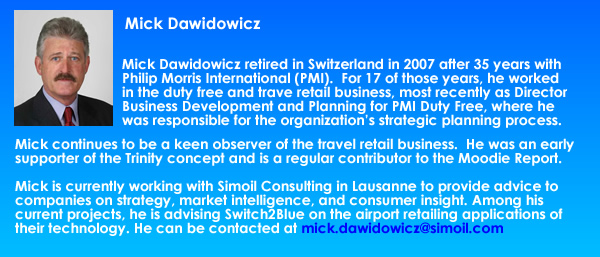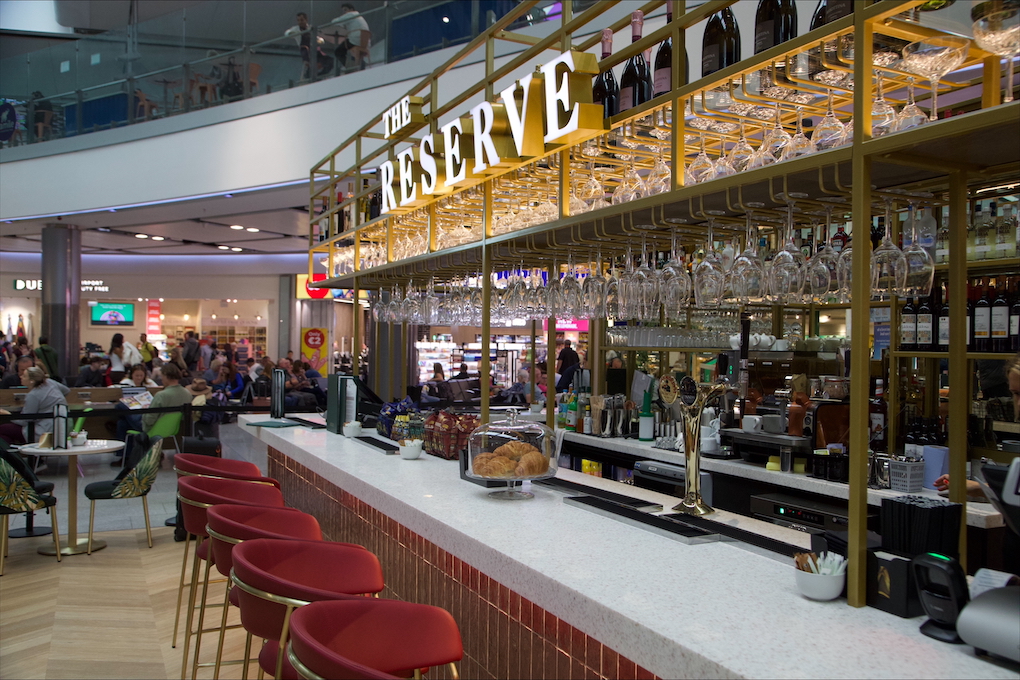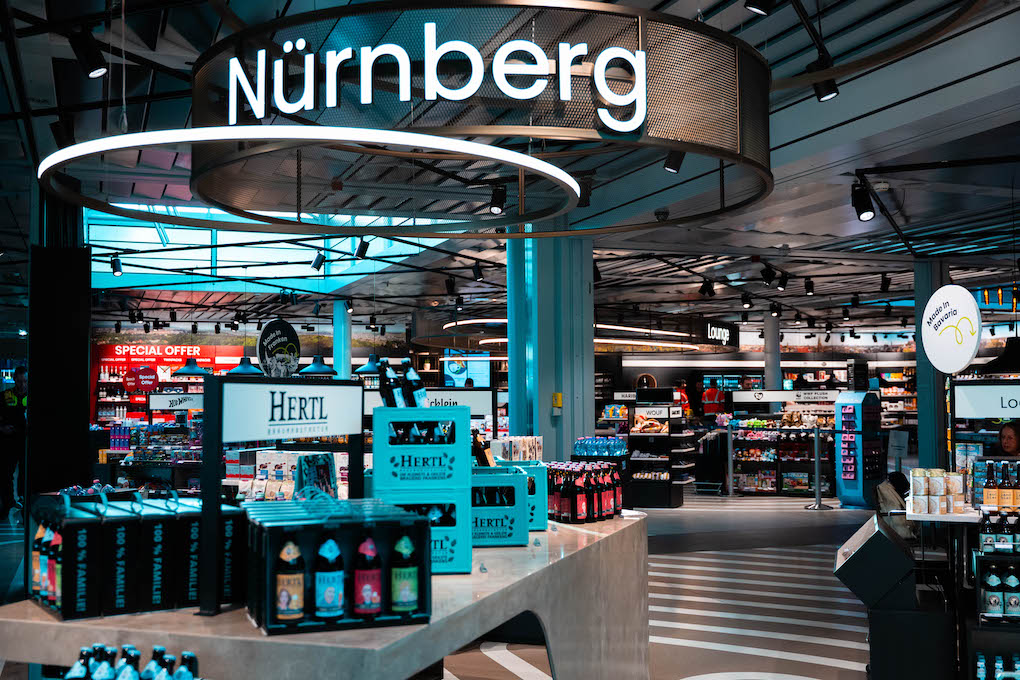INTERNATIONAL. Mick Dawidowicz, long-time Philip Morris International duty free executive and occasional columnist for The Moodie Report, has hit out at a recent Kelkoo survey that compared online and airport ‘tax free’ retail pricing in Europe.
The Moodie Report, which published both the original claims and BAA’s response, invites further comment from readers via The Moodie Forum at the foot of this story.
Dear Martin,
Once again the industry is being defined by outside ‘observers’ or self-styled experts who know little or nothing about the business – and generally get it wrong, usually to the detriment of the industry.
Just take the recent Kelkoo report (The Moodie Report, August 17, 2010) negatively contrasting ‘tax free’ airport prices in Europe with those on the high street and on the Internet, and which was issued with much fanfare to significant media coverage.
The number of mistakes and omissions in their press release are pretty breathtaking.
For starters, consider their underlying assumption:
“The study focuses on tax free shopping (free of VAT) for travellers whose journeys start and end within the EU, rather than duty free shopping (free of VAT and excise duty), which was abolished in 1999 by EU member states…”
They obviously haven’t heard that intra-EU sales are both duty and tax paid, not tax free. Thus, any savings are essentially a discount out of the retailer’s margin, which may or may not be equivalent to the VAT rate in a particular country – the same as for any other retailer.
Additionally, they make no mention of whether online prices include shipping charges (which are often exorbitant), what exchange rates they use, or details of their methodology, other than in very general terms. The results would indicate that the methodology is fundamentally flawed.
Take cigarettes, which I know something about. Tobacco prices are shown as -11.9% less at airports and -4.9% less online. This is patently rubbish.
Cigarettes sold at airports to intra-EU travellers are domestic tax paid products and are sold, by law, at the same prices (if not occasionally higher, depending on the distribution structure) as in standard high street outlets. Thus, on a weighted average basis, airport prices should be slightly higher than high street ones, not -11.9% less.
The online comparison is even more suspect. Many Internet cigarette websites are scams, and since the same price controls apply, the only source of cheaper cigarettes would be cross-border sales of tax paid products which, if memory serves me well, are illegal in the EU.
It would be interesting to hear how tax paid spirits are treated and how other players view the results of this research.
In addition to that, we get the usual clichés about airport shopping:
“Airports create the perfect environment for shopping, as people have time to kill, a holiday feel-good factor, and extra cash in their pockets.”
“”¦the captive airport shopper”¦”
Would that it were all so easy. The airport shopper is about as captive as a 5th Avenue pedestrian rushing to get to work on time.
How will the industry respond? BAA has issued a rebuttal, although it’s pretty tepid and, consequently, hasn’t generated nearly the same media coverage.
If the past is anything to go by, I fear that the industry as a whole will roll over and play dead rather than responding forcefully and substantively to this rubbish, ideally through the ETRC or the Trinity. If that be the case, the industry’s already tarnished image will become further blackened.
There are legitimate questions to be asked about the customer proposition at airports and its value element, but that debate shouldn’t be framed by spurious research primarily aimed at generating publicity at our industry’s expense.
Sincerely
Mick Dawidowicz
 |
[comments]







